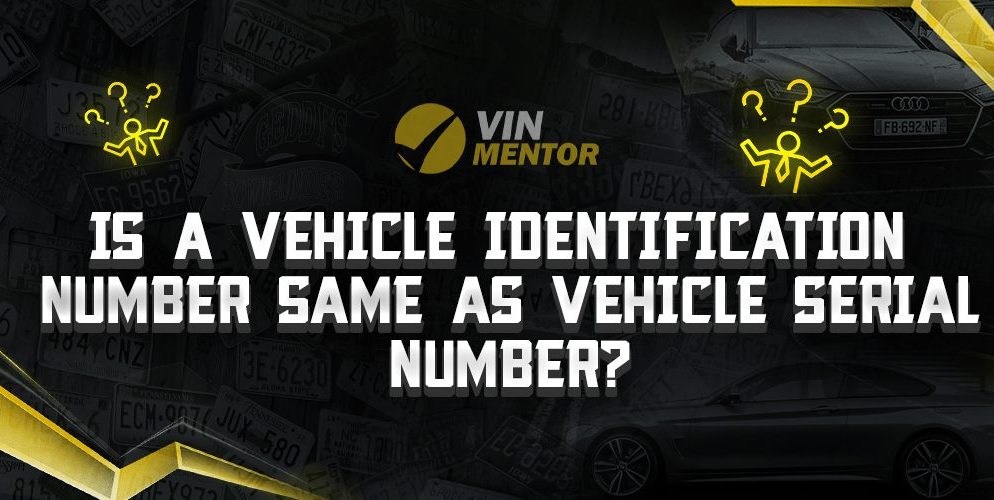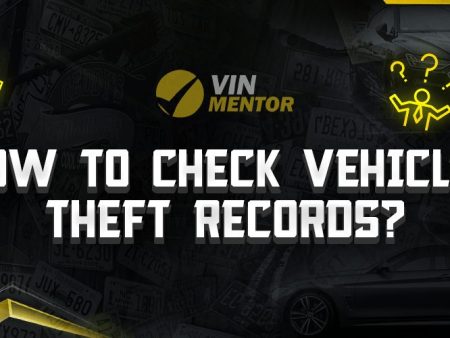

When it comes to identifying a vehicle, two terms are often used interchangeably: Vehicle Identification Number (VIN) and Vehicle Serial Number (VSN). However, are they really the same thing? In this article, we will explore the differences between these two terms and help you understand their importance.
Key Takeaways
- Both VIN and VSN are used to identify a vehicle, but they have different formats and purposes.
- The VIN is a unique 17-digit code that provides detailed information about a vehicle’s make, model, year, and manufacturer.
- The VSN, on the other hand, is a shorter code that only identifies the model and production sequence of the vehicle.
- While the VIN is used for legal purposes such as registering a vehicle, the VSN is primarily used for internal tracking and inventory management.
- Understanding the difference between VIN and VSN is important when buying or selling a vehicle, as well as for insurance and safety purposes.
Examining the Distinctions Between VIN and VSN
Let’s explore the differences between VIN and VSN in more detail.
VIN Format and Purpose
The VIN is a 17-digit alphanumeric code that contains a wealth of information about a vehicle. The first three digits of the VIN represent the World Manufacturer Identifier (WMI), which identifies the vehicle’s manufacturer and country of origin. The next six digits, known as the Vehicle Description Section (VDS), provide information about the vehicle’s make, model, body style, engine type, and more. The remaining eight digits, known as the Vehicle Identification Section (VIS), provide a unique serial number for the vehicle.
The VIN is used for various legal and administrative purposes, such as registering a vehicle, obtaining insurance, and conducting a vehicle history check. By decoding the VIN, you can also learn valuable information about the vehicle’s history, such as its previous owners, accident history, and maintenance records.
VSN Format and Purpose
The VSN is a shorter code that typically consists of 11-12 characters and identifies the model and production sequence of a vehicle. The VSN is usually located on the vehicle’s dashboard, driver’s side door jamb, or engine block.
Unlike the VIN, the VSN is primarily used for internal tracking and inventory management purposes. Car manufacturers use the VSN to track the production and assembly of their vehicles, as well as to identify any defects or quality issues that may arise during the manufacturing process.
Why Understanding the Difference is Important
Understanding the difference between VIN and VSN is crucial when buying or selling a vehicle. When purchasing a vehicle, it’s important to check the VIN to ensure that the vehicle is not stolen, salvaged, or has a history of accidents or maintenance issues. By understanding the VIN’s format and decoding its information, you can also determine the vehicle’s true market value and negotiate a fair price.
On the other hand, when selling a vehicle, you should disclose the VIN to potential buyers to build trust and transparency. Additionally, providing the VIN can help buyers conduct a vehicle history check and verify the vehicle’s condition and ownership history.
Moreover, understanding the VIN is also essential for safety purposes. The VIN provides critical information about a vehicle’s safety features and potential safety recalls, allowing owners to take necessary precautions to ensure their safety and the safety of others on the road.
Conclusion
While the terms VIN and VSN may seem interchangeable, they are different in format and purpose. The VIN is a unique 17-digit code that provides detailed information about a vehicle’s make, model, year, and manufacturer, while the VSN is a shorter code that identifies the model and production sequence of a vehicle. Understanding the difference between VIN and VSN is important when buying or selling a vehicle, as well as for insurance and safety purposes.
If you’re planning to buy or sell a vehicle, or simply want to learn more about a vehicle’s history and safety features, it’s important to conduct a VIN check. There are several reputable VIN check websites available that can help you decode a VIN and provide valuable information about its history, so we recommend you to use our list of the best VIN Check Websites.
FAQ
Can I use the Vehicle Identification Number (VIN) to determine the vehicle’s market value?
Yes, by decoding the VIN and understanding its information, you can get valuable insights into a vehicle’s make, model, year, and manufacturer, which can help you determine its market value more accurately.
Is it necessary to disclose the VIN when selling a vehicle?
Yes, it is recommended to provide the VIN to potential buyers to establish trust and transparency. Sharing the VIN allows buyers to conduct a vehicle history check, ensuring they have accurate information about the vehicle’s condition and ownership history.
Can the Vehicle Serial Number (VSN) be used to check a vehicle’s history?
No, the VSN is primarily used for internal tracking and inventory management purposes by car manufacturers. To access detailed information about a vehicle’s history, such as previous owners, accidents, and maintenance records, the VIN should be used instead.
Are there any safety implications associated with understanding the VIN?
Yes, the VIN provides crucial information about a vehicle’s safety features and potential safety recalls. By understanding the VIN, owners can take necessary precautions and stay informed about any safety issues related to their vehicle, ensuring their own safety and the safety of others on the road.
Are there reliable online resources available for conducting a VIN check?
Yes, there are several reputable VIN check websites that can help you decode a VIN and provide valuable information about a vehicle’s history. It’s advisable to refer to trustworthy sources when conducting a VIN check to ensure the accuracy and reliability of the information obtained.












